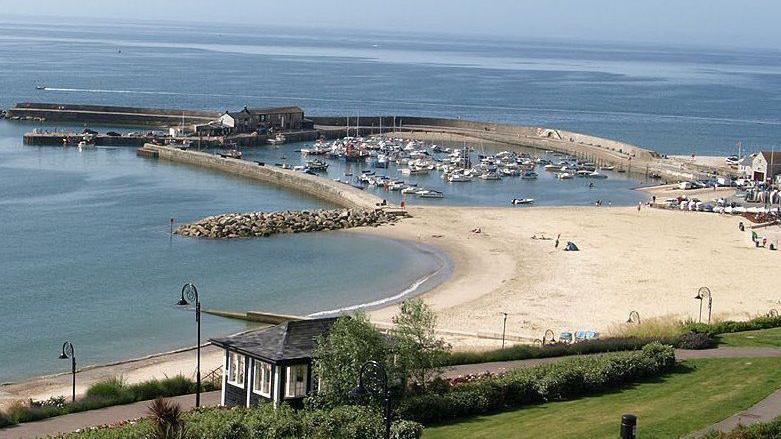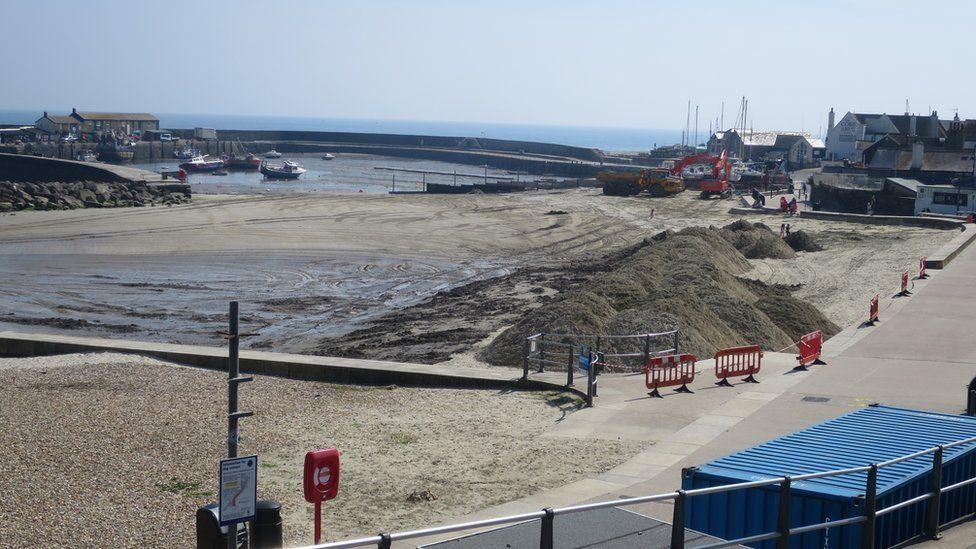Harbour schemes hit by rising costs

The Cobb at Lyme Regis is a Grade 1 listed structure
- Published
Work to protect harbours on the Dorset coast could be delayed or reduced in scale because of rising costs.
The final phase of structural repair work on the Cobb at Lyme Regis is said to be at least £2m short. A scheme at Weymouth also faces a funding shortfall.
Dorset Council said it was trying obtain additional funding for both schemes.
The original proposals for the Cobb, intended to strengthen the stone-built breakwater, were expected to cost about £3m.

Sea-floor erosion is gradually destabilising the Grade 1 listed Cobb, Dorset Council said
They followed structural investigations that showed sea-floor erosion was "gradually destabilising" the Grade 1 listed structure.
A meeting of Dorset Council's harbours consultative committee heard the costs had now risen by at least £2m.
Nick Marks, chair of the Lyme Regis harbour users consultative committee, told the meeting there was concern the project would be delayed or cut back leading to more winter storm damage.
“We want the scheme to start in autumn 2025, as planned, as there is a clear risk to the Cobb structure and its integrity,” he said.

The work on the Cobb will help defend the previous coastal works carried out in 2007
Plans include upgrading the electricity supply as buildings on the Cobb lost power because of winter storms, the fifth time it has happened in recent years.
Manager for flood and coastal erosion at Dorset Council, Matthew Penny, said other recently-discovered problems included damage to the base of the seaward wall which would need immediate specialist work.
He said his team was working on finding additional funding and also investigating ways of reducing cost – although the scheme was still scheduled for an autumn 2025 start.
The meeting also discussed the Weymouth Flood and Coastal Erosion Risk Management scheme.
Mr Penny said “a substantial funding gap can be expected due to higher construction costs, inflation and grant funding eligibility”, which he added was now common for many coastal schemes.
The meeting heard that for both schemes the rising costs would mean redesign work having to be undertaken to reduce the final bill, along with efforts to source additional funding.
Related internet links
See also
Cash for £3m repairs to eroding breakwater secured
- Published29 September 2022
In pictures: Timothée Chalamet on Wonka film set
- Published11 October 2021
Follow BBC South on Facebook, external, X, external, or Instagram, external. Send your story ideas to south.newsonline@bbc.co.uk, external.